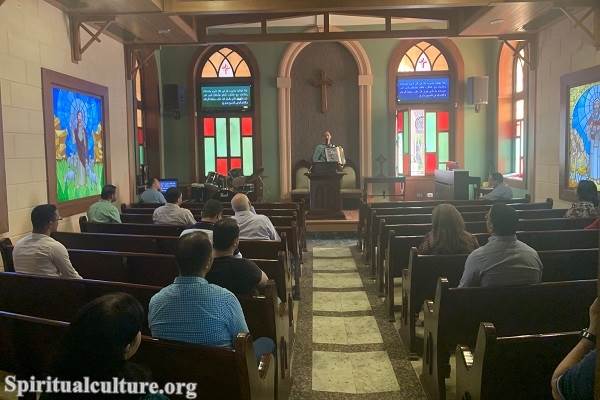In every heart that longs to follow Christ, there is a quiet wonder about the mysterious ways God equips His people. How do ordinary believers find extraordinary strength to serve, love, and transform the world? The concept of spiritual gifts answers this question deeply, offering a glimpse into the dynamic, living work of the Holy Spirit.
As “Spiritual Culture,” we invite you to journey into the Protestant understanding of spiritual gifts — not just as abstract theological concepts but as living realities that shape communities, renew faith, and empower each believer to become a vessel of divine love.
In this article, we will explore what spiritual gifts are in Protestant traditions, how they are understood biblically, the various types, and how they shape personal and communal life. We will also reflect on their role in deepening one’s relationship with God and serving the wider world.
What Are Spiritual Gifts? A Biblical Foundation
At the core, spiritual gifts are special abilities given by the Holy Spirit to believers for the common good and the building up of the Church. Protestants often turn to key New Testament passages for understanding:
“Now there are varieties of gifts, but the same Spirit; and there are varieties of service, but the same Lord; and there are varieties of activities, but it is the same God who empowers them all in everyone.” — 1 Corinthians 12:4-6 (ESV)
Not Just Talents, But Spiritual Empowerment
While talents are natural abilities, spiritual gifts are seen as divinely given, beyond mere human skill. They arise from the Spirit’s presence and work within believers. These gifts are not for personal glory but for serving others, unifying the body of Christ, and pointing to God’s kingdom.
Rooted in Grace
The word “charisma” (from the Greek charis, meaning grace) emphasizes that these gifts are acts of grace. They cannot be earned or demanded, only received and stewarded in humility.
The Main Categories of Spiritual Gifts
Protestant perspectives, especially in Evangelical and Pentecostal traditions, generally classify spiritual gifts into several broad categories:
Speaking Gifts
These include prophecy, teaching, exhortation, tongues, and interpretation of tongues. They are meant to build up, encourage, and instruct the church community.
“If anyone speaks, they should do so as one who speaks the very words of God.” — 1 Peter 4:11 (NIV)
Prophecy
Prophecy is often understood as a Spirit-led declaration that strengthens, comforts, or encourages believers. Some traditions believe prophecy can involve foretelling future events, while others emphasize forthtelling — declaring God’s truth for a specific situation.
Teaching
This involves clearly explaining God’s Word and doctrine. Teachers are valued for helping believers grow in understanding and maturity.
Tongues and Interpretation
Particularly emphasized in Pentecostal and Charismatic movements, these gifts are seen as a sign of the Spirit’s presence and a means of intimate prayer or community edification when interpreted.
Service Gifts
These gifts involve acts of compassion and support: serving, helping, giving, leadership, and administration. They reflect Christ’s humble service to humanity.
“If it is serving, then serve; if it is teaching, then teach; if it is to encourage, then give encouragement; if it is giving, then give generously; if it is to lead, do it diligently; if it is to show mercy, do it cheerfully.” — Romans 12:7-8 (NIV)
Sign Gifts
These include healing, miracles, and discernment of spirits. Their purpose is to affirm God’s power and compassion, often used as a witness to the Gospel’s truth.
Healing and Miracles
These gifts point to God’s sovereignty and compassion, emphasizing His desire to restore and redeem brokenness in the world.
Discernment of Spirits
This gift enables believers to distinguish between divine, human, or demonic influences, safeguarding the community from deception.
Unity and Diversity: The Church as One Body
The Apostle Paul’s metaphor of the Church as a body (1 Corinthians 12) profoundly shapes Protestant views on spiritual gifts. Each believer is like a different part — hand, eye, foot — essential and interdependent.
Embracing Different Callings
The diversity of gifts does not imply division but rather unity through mutual dependence. No gift is superior or inferior; all are vital for the flourishing of the whole.
Serving in Love
Paul underscores that all gifts must be exercised in love. Without love, even the most spectacular gift becomes empty noise:
“If I speak in the tongues of men or of angels, but do not have love, I am only a resounding gong or a clanging cymbal.” — 1 Corinthians 13:1 (NIV)
Varying Protestant Views: Continuationism vs. Cessationism
Not all Protestant denominations understand spiritual gifts in the same way. Two main theological perspectives often emerge:
Continuationism
Many Pentecostal, Charismatic, and some Evangelical Christians believe all spiritual gifts, including miracles and tongues, continue today. They see these as vital for church vitality and mission.
Cessationism
Some Reformed and traditional Evangelical groups believe that certain “sign gifts” ceased with the apostolic age. They hold that miracles and tongues were specific to establishing the early church and authenticating the apostles’ message.
Why the Difference?
The divergence is rooted in interpretations of scripture, historical experiences, and differing understandings of the Spirit’s ongoing work. Yet, both views agree on the core call to serve others selflessly.
How Are Spiritual Gifts Discovered and Used?
Prayer and Community Discernment
Believers are encouraged to pray and seek guidance from the community to recognize their gifts. Spiritual gifts assessments are also common tools in many churches today.
Serving as an Act of Worship
Using one’s gifts is seen not just as ministry but as an offering to God, a tangible expression of worship.
Growth Through Practice
Gifts mature and strengthen through humble, faithful use. Mistakes and learning moments are part of the spiritual journey.
Spiritual Gifts and Personal Transformation
Deepening Faith
Using spiritual gifts can lead to deeper trust in God, as believers witness His power working through them in unexpected ways.
Cultivating Humility
Relying on God’s gifts reminds believers of their dependence on His grace rather than their own strength.
Becoming Channels of Grace
Through gifts, believers become living testimonies, channels through which God’s love and truth flow into the world.
Spiritual Gifts and Global Witness
Empowering Mission
Many Protestant missions emphasize that spiritual gifts equip believers to cross cultures and proclaim the gospel effectively, whether through teaching, healing, or acts of compassion.
Healing Divisions
When gifts are used in love and unity, they can heal divides within churches and build bridges across denominational lines.
Reflect and Reimagine
As we reflect on the Protestant view of spiritual gifts, we are invited into a deeper understanding of God’s active love in our lives. These gifts are not rare privileges for a few, but open invitations to every believer to step into a life of service, humility, and joy.
Imagine a world where each person courageously offers their unique gift in love — a world where healing replaces division, where mercy silences judgment, where faith blooms in unlikely places.
May you take time to explore and embrace the gifts God has placed within you. Listen to the Spirit’s quiet promptings, offer your gifts with open hands, and discover the profound joy of becoming a living vessel of divine grace.
Together, as one body, we embody Christ’s presence in the world — diverse yet united, humble yet radiant, ordinary yet empowered by extraordinary love.





